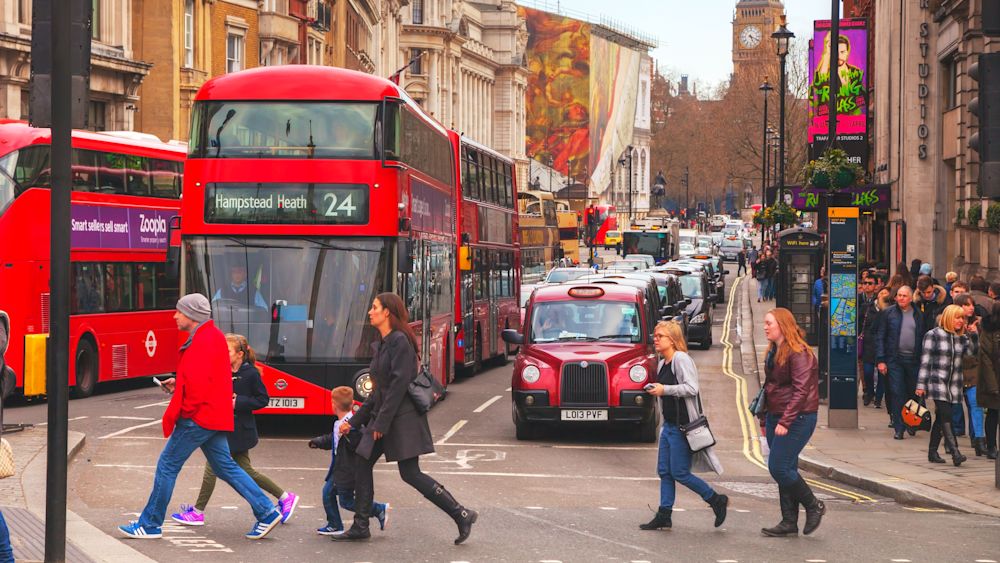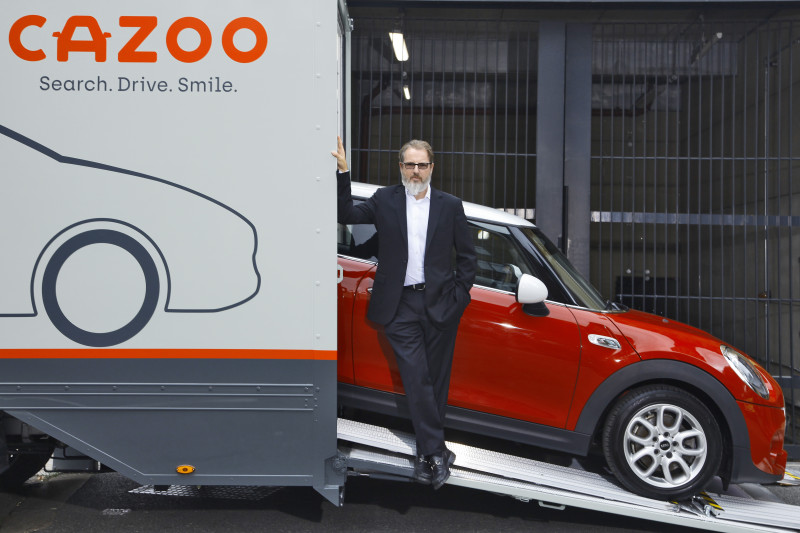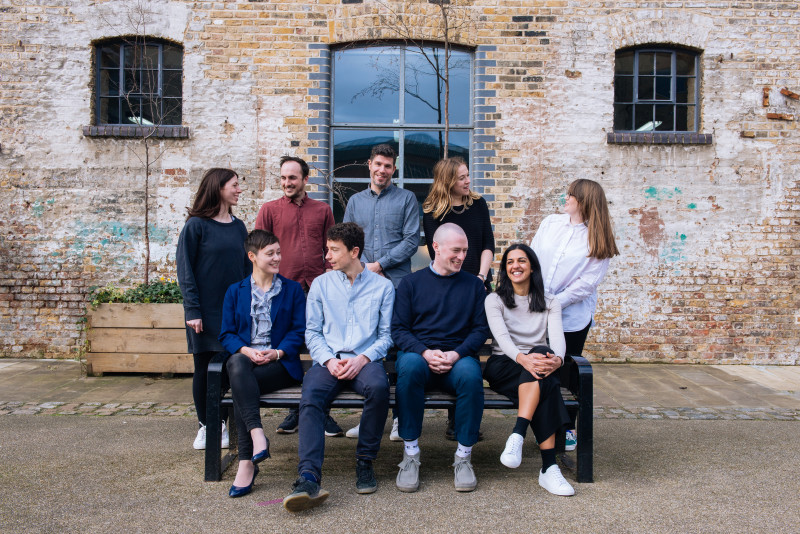The 5 Best Tech Startups to Work For in London
Table of contents
In a world where job flexibility and remote working are increasingly being pushed to the forefront, creating an employee-focused environment has become pivotal to companies’ success. The Org spoke to London startups that pride themselves on a commitment to employees, and because of that feature some of the U.K. capital’s best and brightest talent.

In a world where job flexibility and remote working are increasingly being pushed to the forefront, creating an employee-focused environment has become pivotal to companies’ success.
The Org spoke to London startups that pride themselves on a commitment to employees, and because of that feature some of the U.K. capital’s best and brightest talent.
Cazoo, Cleo and Farewill were featured by job site Tempo in the top 50 London tech firms to work for. The trio were also listed, along with Ably, on recruitment specialist Otta’s 2021 Rocket List of fastest growing companies.
Koalaa: for team spirit and camaraderie
Koalaa’s founder Nate Macabuag, who was featured in the 2020 Forbes 30 under 30 list for social impact, launched his new prosthetics company only a couple of weeks before the U.K. went into a national lockdown due to the coronavirus last March.
The company planned to design and produce a slip-on fabric sleeve that could be manipulated into a set of different tools for those who require prosthetic limbs. Factory manufacturing was stalled due to COVID-19, so Koalaa staff had to move production to their bedrooms. One team member would produce one item, another person a second. The progress would be discussed over video calls.
The unusual set up for the team, now 16 staff working in a London-based factory, ended up building a community spirit quicker than may have been possible under normal circumstances.
Macabuag told The Org: “Our staff turnover is very low, with people arriving in the Koalaa fold and thus far, not wanting to leave. We employ people who subscribe whole-heartedly to our mission, who are invested in our goals and who will put their all into helping Koalaa achieve its ever more ambitious aims, just as Koalaa puts it all into them.”
He said Koalaa staff came to work for “much more than money,” and that led to a happy and committed environment. The company also offers flexible employment, with many of its staff working remotely from home. Macabuag said regular check-ins and weekly whole-staff meetings were always prefaced with the team catching up on life news and updates first to “maintain a sense of community and teamwork”.
He added: “Even though some of our staff have never met each other in person, working at opposite ends of the country, there is still a genuine sense of companionship and camaraderie amongst our team.”
“It’s a fact of life that much of our time is spent at work, so it is logical to me that work should be a happy place.”
In May of this year Koalaa secured a second round of investment from the British Design Fund , which was also the company’s first institutional investor after an angel round last year. Because of a fundraising campaign called Project Limitless through the Douglas Bader Foundation, the startup could supply 150 prosthetics to children free of charge.
Ably: for staunch values that carry through
Ably calls itself a provider of “a suite of APIs to build, extend and deliver powerful digital experiences in real time”. In 2020, the fast-growing company saw its platform usage triple. It now reaches 250 million unique devices every month.
This week Ably announced its $70 million Series B, which is co-led by Insight Partners and Dawn Capital LLP.
Internally, it has committed itself to diversity and inclusion in practical ways which tackle industry specific stigmas. Ably introduced gender coding on all job adverts, works with agencies that specialize in hiring for diversity and has written guides for managers on hiring for a more diverse workforce.
Beyond the hiring process, Ably also offers enhanced maternity and shared parental leave, universal online counselling and flexible working hours. The company has also hosted sessions on burnout with employee support group Spill, which pays for mental health sick days. An ‘open-for-all’ channel is also set up to let employees offer initiatives, one such being Ably removing non-inclusive terminology from its codebases.
Jodie Pinkowski, Head of People at Ably, told The Org Ably was a place where people could be themselves. “There's a lot of crazy smart people here, but everyone is humble and welcoming. We also care about doing the right thing. Like most companies right now, a big focus for us is on diversity and inclusion.”
She said the company worked with FairHQ to gather data on both diversity and the different experiences certain groups had within Ably, “to make sure we're building a workplace that gets the best out of everyone, and respects that ultimately we're all different, wonderful humans.”
Cazoo: for personal growth and knowledge
In its first year of trading, Cazoo -- which helps people buy and sell used cars online -- grew its team to more than 850 people and sold over 10,000 cars, generating revenues of over £150 million.
The online car retailer’s expansion also saw it buying sites across the U.K. for a “click and collect” service and developing sports sponsorship deals with the likes of Matchroom, the Welsh Rugby Union and European Tour Golf. The company is expected to go public later this year with a value of $7 billion through a merger with SPAC Ajax.
Simon Baker, U.K. Talent Director of Cazoo, told The Org that Cazoo’s team members, which now include more than 2,000 people, cover a number of different areas and have different and unique needs, but all “share the same vision and values.” Cazoo’s values are rooted in its commitment to give each individual employee a voice, and the company runs a number of learning lunches, educational events and employee resource groups to encourage self-empowerment.

Employees also have a stake in the company; each Cazoo employee is a shareholder and owner of the business. Other perks include a personal wellbeing fund, matched charitable giving, a birthday day off and additional time off for volunteering and healthcare.
"We build our people strategy based on understanding the needs of each of these groups and we are as obsessive about employee experience as we are about customer experience,” Baker said.
He told The Org that Cazoo’s particular areas of success include its physical and mental wellbeing agenda, the ‘Cazoodos’ peer recognition programme, Diversity, Equality and Inclusion focused employee resource groups and a programme of inspiring external speakers.
Cleo: for clear, transparent goals
As an AI-powered personal financial assistant, Cleo was among one of the first companies to mobilise Facebook messenger’s chatbot for customer service,making it popular with Gen Z users. Cleo has 4 million registered users, and 96% of them are based in the U.S.
At the end of 2020, it had raised $44 million in Series B funding led by EQT Ventures with participation from Balderton Capital, LocalGlobe and SBI.
The company’s latest diversity report showed Cleo’s staff is 45% female, 49% male and 5.8% non-binary. The report said that although the company did well on a binary male to female scale, “we need to address the lack of women in Cleo tech roles, and the lack of non-binary people at Cleo overall – pushing for inclusion of non-binary people in each department and creating an environment where both women and non-binary people feel like they have as much of a voice in a meeting room as a cis man.”
It also touched on its “active, not passive” need to hire people who are not of white ethnicity (as 58.8% of Cleo’s staff are, according to the report) and going above and beyond the norm to make that happen.
According to Charlie HR benchmark statistics, Cleo is in the top 10% when it comes to parental leave policy; it offers six weeks off with full pay to all expecting staff and an additional six weeks off at 50%, which can be taken anytime in the first year of being a new parent. It also has a diversity and inclusion committee that has fortnightly check-ins, and works on a six-month rotating unconscious bias training programme for all its employees.
According to its diversity report, Cleo’s plans for this year include a state-school scholarship program for roles that “now require degree-level qualifications for no good reason”, an improvement of the hiring process, and increased accountability.
Farewill: for a growing company with big ideas
Farewill, the U.K.’s largest will writer, has since written over 30,000 wills and raised over £100 million for charity since it was founded in 2015.
The company raised its Series B and more than doubled its team in 2020, and this year has worked on building three news product teams and expanding every other function.
In June 2020 it raised £20 million in funding in a venture round led by Highland Europe. In January 2019, Farewill closed a Series A round of just under $10 million.

The company won Best Employer of 2020 at the U.K. Fintech Awards, praised for its commitment to diversity and inclusion.Some 56% of the team identify as women, as do half of the leadership team. In-house training and development is budgeted and the team prides itself on a rigorous and serious approach to the hiring process.
According to anonymous staff reviews on job website Otta, employees enjoy perks like free assistance counselling, a lack of stigma around mental health days and weekly “All Hands” meetings where every decision made by Farewill, and the meaning behind it, is communicated. As of December 2020, its 12-month employee growth was 105%.
--
The Org is a professional community where transparent companies can show off their team to the world. Join your company here to add yourself to the org chart!
In this article


The ORG helps
you hire great
candidates
Free to use – try today